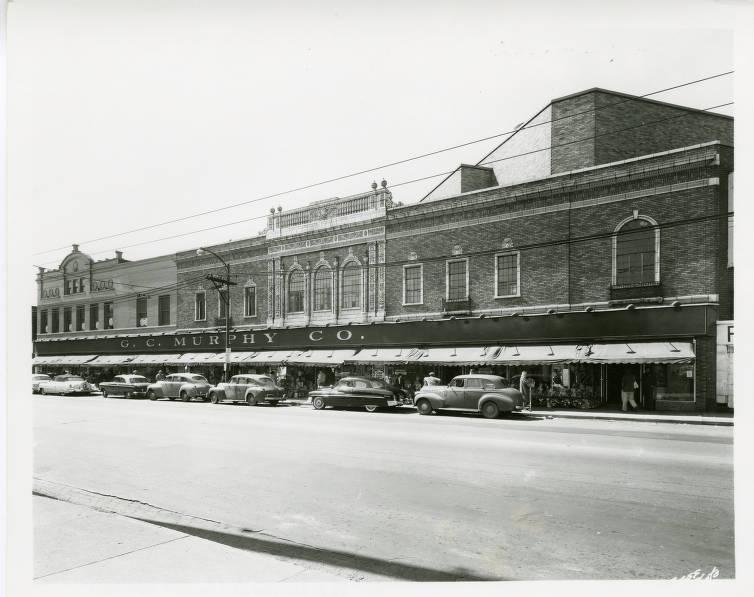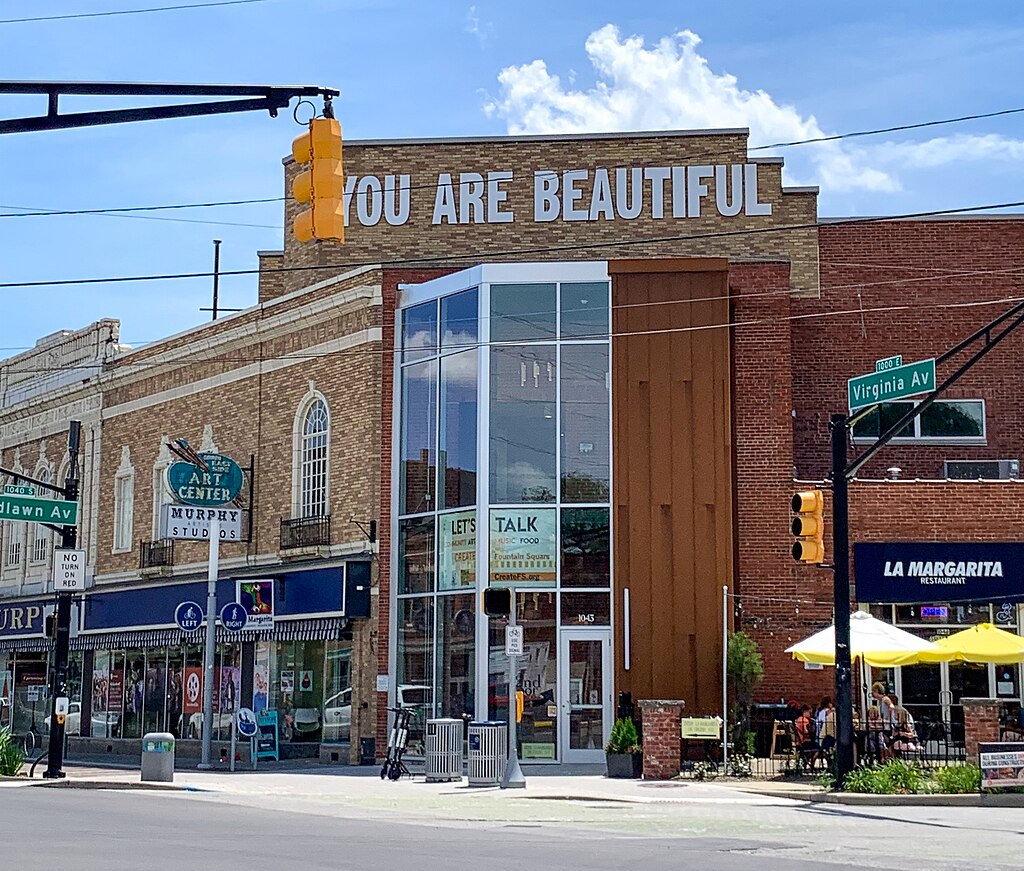The Murphy Arts Center is located in , a southeast side neighborhood unique for its historic residential and commercial structures. Virginia Avenue continues to function as the main commercial corridor of Fountain Square.

Located at 1047 Virginia Avenue, the Murphy Arts Center is comprised of two buildings. The Schreiber Block building (1053-1057 Virginia Avenue) was a commercial storefront with lodging on the second floor, and the Granada Theater building (1043-1047 Virginia Avenue) served as a movie house. William Schreiber built both structures on the Schreiber Block in the mid-1880s with additions to the original structure sometime in the 1920s. In 1929, the G. C. Murphy Company department store occupied the building. Demolition of part of the southern portion of the structure to accommodate construction of new structures to the south as well as an addition on the northern section of the structure resulted in the asymmetrical appearance of the entire facade.
In 1928, Indianapolis architect Donald Graham designed the brick and terra cotta Granada Theater in the Spanish Baroque Revival style. In 1951, upon the theater’s closure, G. C. Murphy Company purchased both structures and combined them into one 57,000-square-foot retail building with stockrooms and management offices on the second and third floors.

The Murphy Store ceased operations in 1998. The South East Neighborhood Development (SEND) Community Development Corporation, a local community development corporation, redeveloped the structure into a center for the arts and business with retail spaces along Virginia Avenue. The rebranded Murphy Arts Center became a , studio, and art supply mixed-use hub for local artists. Artists Phil Campbell and Ed Funk also drove the redevelopment of the structure.
By 2006 the arts center had begun to decline. Deylen Realty saved the building from foreclosure by purchasing the 57,000-square-foot structure in 2009. Specializing in adaptive reuse, Deylen Realty converted much of the former artist space into offices, restaurants, two music venues, and a pinball club. The , an urban trail that connects Indianapolis’ cultural districts, promotes connectivity and street-level activity to the Murphy Arts Center.

Help improve this entry
Contribute information, offer corrections, suggest images.
You can also recommend new entries related to this topic.